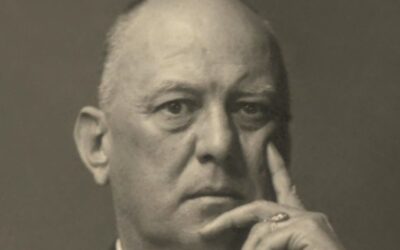George Frideric Handel, one of the greatest composers of the Baroque era, left an indelible mark on the world of classical music. Known for his masterful compositions in opera, oratorio, and instrumental music, Handel’s influence continues to resonate in music halls and churches around the world. His ability to blend the dramatic with the spiritual made his work stand out in his time and has helped it endure for centuries. Let’s explore the life, greatest achievements, and legacy of this legendary composer.
Early Life and Passion for Music
Handel was born on February 23, 1685, in Halle, Germany. Though his father, a prominent barber-surgeon, wanted him to pursue a career in law, Handel’s musical talent was impossible to ignore. By the age of seven, he was already proficient with the organ, and by his teens, he was studying composition and performance under the renowned German composer Friedrich Wilhelm Zachow.
At the age of 18, Handel began his professional career as a violinist and composer with the opera house in Hamburg. His early exposure to opera greatly influenced his later work, helping him develop a distinct style that would blend German, Italian, and English musical traditions.
Why Handel Became Famous
Handel’s fame began to rise after he moved to Italy in 1706, where he composed his first operas. Italy, at the time, was the heart of the opera world, and Handel’s works quickly garnered attention. His operas, such as Agrippina, showed his ability to convey deep emotion and complex characters, making him a favorite in Italian theaters.
However, it was his move to London in 1712 that truly cemented his status as one of the great composers of his time. In England, Handel found a thriving cultural scene that embraced his operatic and instrumental compositions. His works were regularly performed at royal events, and in 1727, he was commissioned to compose music for the coronation of King George II. This moment established him as England’s preeminent composer, a title he held for the rest of his life.
Greatest Achievements: The Oratorio and Messiah
Handel’s greatest contribution to the world of music was the development of the oratorio, a large-scale musical work for orchestra and voices, typically based on religious themes. Unlike opera, oratorio does not require costumes or staging, allowing the music and text to take center stage.
While Handel composed many successful operas, it is his oratorios that have had the most enduring influence. His most famous work, Messiah, first performed in 1742, remains one of the most beloved pieces of choral music ever written. Messiah is celebrated for its profound religious themes, dramatic structure, and the iconic “Hallelujah” chorus, which has become a standard at holiday concerts and religious celebrations worldwide.
Example:
- The Messiah oratorio is performed annually during the Christmas and Easter seasons, demonstrating its lasting relevance. The “Hallelujah” chorus is so iconic that audiences often stand as a sign of respect during its performance, a tradition that began with King George II.
In addition to Messiah, Handel composed other famous oratorios, such as Samson and Israel in Egypt, which also showcase his mastery of combining sacred themes with dramatic musical expression. His work in this genre set the standard for future composers and is considered a key development in Western music history.
Handel’s Influence on Music and Culture
Handel’s influence extended beyond his lifetime and shaped the future of classical music. He popularized the oratorio in England, influencing composers such as Joseph Haydn, Ludwig van Beethoven, and even Wolfgang Amadeus Mozart, who famously admired Handel’s ability to blend emotional depth with technical brilliance.
Handel’s operas and oratorios also had a lasting impact on the performance traditions of England. His music became a cultural institution, with works like Messiah becoming an annual tradition in England and beyond. Moreover, his emphasis on dramatic storytelling through music helped pave the way for the development of the symphonic and choral traditions that would flourish in the Classical and Romantic periods.
Example:
- Ludwig van Beethoven once said of Handel, “He is the master of us all,” acknowledging the immense influence Handel had on later composers. This shows how Handel’s legacy continued to shape music long after his death.
Beyond music, Handel’s philanthropy and civic engagement in London left a mark on the city’s cultural life. He was involved in charitable work, particularly with the Foundling Hospital, where performances of Messiah were used to raise funds for orphaned children.
Legacy and Enduring Fame
George Frideric Handel passed away in 1759, but his legacy remains alive today. His music continues to be performed by orchestras, choirs, and soloists around the world. His ability to craft compositions that speak to the soul has kept his work relevant for over 250 years.
Handel’s legacy is not only one of musical brilliance but also of resilience and dedication. Despite health issues in his later years, including blindness, he continued to compose and perform, demonstrating an unwavering passion for his craft.
Example:
- Today, the annual Handel Festival in Halle, Germany, and the worldwide performances of his works keep his memory alive, proving that his influence on music and culture remains as powerful as ever.
A Maestro for the Ages
George Frideric Handel was more than a composer—he was a pioneer in his field, blending different musical traditions into a body of work that still resonates today. From his operas to his oratorios, his ability to evoke powerful emotions and tell stories through music has left an enduring mark on classical music and Western culture.
Handel’s influence on future generations of musicians is undeniable, and his legacy as one of the greatest composers in history is secure. His music, especially Messiah, remains a staple of concert repertoires worldwide, ensuring that his genius will be celebrated for generations to come.
Now that you’ve learned about the life and legacy of George Frideric Handel, think about how his music has influenced modern compositions and performances. What aspects of Handel’s work resonate with you the most, and how do you think his contributions continue to shape the music we listen to today?
Expand Your Vocabulary
- Baroque
Meaning: A style of European art, architecture, and music from the 17th and early 18th centuries, known for its elaborate details.
Context: “George Frideric Handel is one of the greatest composers of the Baroque era.”
Everyday Use: You might describe anything elaborate or ornate as “Baroque,” such as, “Her style of decorating is almost Baroque, with intricate designs and rich colors.” - Oratorio
Meaning: A large-scale musical work for orchestra and voices, typically based on a religious theme, performed without costumes or scenery.
Context: “Handel’s greatest contribution was the development of the oratorio, a dramatic but unstaged musical form.”
Everyday Use: While specific to classical music, you might use “oratorio” when talking about grand and structured storytelling, like, “The documentary felt like an oratorio, filled with rich voices narrating the story.” - Proficient
Meaning: Skilled or competent in doing something.
Context: “By the age of seven, Handel was already proficient with the organ.”
Everyday Use: You might say, “She’s proficient in three languages,” when talking about someone who has mastered a skill. - Dramatic
Meaning: Relating to drama or sudden and striking in appearance or effect.
Context: “Handel’s ability to blend the dramatic with the spiritual made his work stand out.”
Everyday Use: You can use “dramatic” to describe anything that is intense or impactful, like, “The clouds created a dramatic sky before the storm.” - Patronage
Meaning: Financial support given by someone to a person, organization, or cause.
Context: “Handel’s music flourished thanks to the patronage of English royalty.”
Everyday Use: “Patronage” is often used to describe support in the arts or business, such as, “The new gallery depends on the patronage of art lovers to stay open.” - Iconic
Meaning: Widely recognized and well-established, representing something significant.
Context: “The ‘Hallelujah’ chorus from Messiah is one of Handel’s most iconic works.”
Everyday Use: You might say, “That movie scene is iconic,” to describe something famous or instantly recognizable. - Philanthropy
Meaning: The desire to promote the welfare of others, often through donations of money, time, or resources.
Context: “Handel was involved in philanthropy, using his music to raise funds for charitable causes.”
Everyday Use: “Philanthropy” can be used whenever discussing charitable giving, like, “Her philanthropy supports education for underprivileged children.” - Resonate
Meaning: To evoke a feeling of shared emotion or belief; to have a lasting impact.
Context: “Handel’s ability to evoke powerful emotions continues to resonate with audiences today.”
Everyday Use: You could say, “That song really resonates with me,” when talking about something that has a personal or emotional connection. - Circumnavigation
Meaning: The act of traveling all the way around something, particularly the Earth.
Context: “Handel’s approval of Sir Francis Drake’s circumnavigation demonstrated his ambition for England’s global influence.”
Everyday Use: This term is more formal but can be used metaphorically, like, “We had to circumnavigate several issues before finding a solution.” - Enduring
Meaning: Lasting over a long period of time; permanent or eternal.
Context: “Handel’s legacy remains enduring, with his music still celebrated worldwide.”
Everyday Use: You might say, “The enduring popularity of classic literature shows its timeless appeal,” referring to something that lasts a long time.
Let’s Talk
Now that you’ve learned about the life and legacy of George Frideric Handel, here are some thought-provoking questions to encourage deeper reflection and discussion:
- Handel blended different musical traditions to create something unique. How do you think combining different cultural influences impacts creativity today? Can you think of modern examples where this has been successful?
- Handel’s Messiah has been performed for centuries and is still popular today. What do you think makes a piece of music or art truly timeless? How does music from different eras continue to resonate with audiences?
- Despite facing health challenges later in life, Handel continued to compose. How do you think passion and perseverance contribute to long-term success? Can you think of other artists or figures who demonstrated this kind of resilience?
- Handel’s works, especially Messiah, have been used to raise money for charity. How can art and music play a role in philanthropy today? What are some ways that musicians and artists can contribute to social causes?
- Handel’s legacy is still celebrated through festivals and performances around the world. What does legacy mean to you? How would you like your work or contributions to be remembered in the future?
Feel free to share your thoughts in the comments or discuss these questions with friends and family. Understanding Handel’s life and work not only deepens our appreciation for his music but also invites us to think about how creativity, resilience, and philanthropy shape our world today.










0 Comments